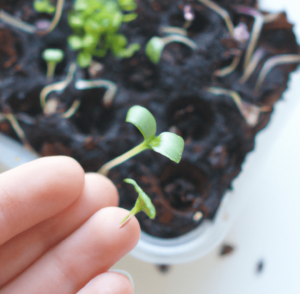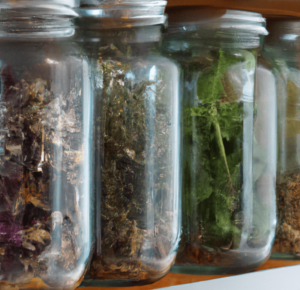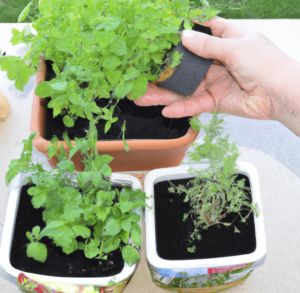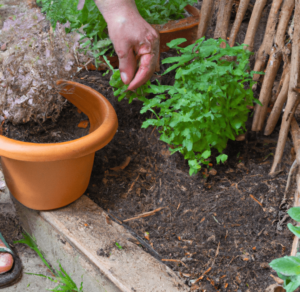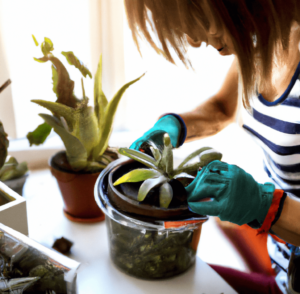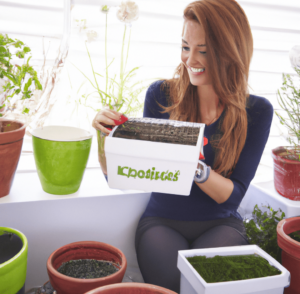Gardening is a beloved hobby for many people, providing a sense of accomplishment and a chance to connect with nature. However, as any seasoned gardener knows, the success of a garden depends on a variety of factors, including the amount of sunlight it receives. In this article, we will explore the impact of the sun on gardening and how gardeners can use this natural resource to their advantage.
Solar energy plays a crucial role in the growth and development of garden plants. Sunlight provides the energy needed for photosynthesis, the process by which plants convert sunlight into energy and produce the oxygen we breathe. Without sufficient sunlight, plants will not grow as vigorously and may even struggle to survive.
Plants also need sunlight to produce essential nutrients, such as vitamin D, which helps them stay healthy and resistant to disease. Sunny gardens are therefore more likely to produce abundant, healthy crops.
For gardeners, understanding the sun’s impact on their plants is key to achieving success. By choosing plants that thrive in sunny conditions and positioning them in areas of the garden that receive ample sunlight, gardeners can maximize their chances of success.
However, it’s important to note that too much sun can also be detrimental to certain plants. Some plants, such as succulents and cacti, are adapted to arid, sunny conditions and can tolerate long periods of direct sunlight. Others, such as ferns and impatiens, require more shade and may suffer if exposed to too much sun.
In conclusion, the sun plays a vital role in gardening and can either make or break a gardener’s success. By understanding the sunlight needs of different plants and positioning them accordingly, gardeners can harness the power of the sun to create beautiful, productive gardens.

The Sun: A Powerful Source of Life for Plants
As a gardener, you know that the sun is an essential element for plants to thrive. It provides warmth, light, and energy for photosynthesis, which is the process by which plants convert sunlight into food. Without the sun, plants would not be able to grow and produce the oxygen that is vital to all living things.
On a sunny day, the sun’s rays can be seen casting a golden glow on the leaves of a tree, highlighting the vibrant colors of a flower. The sun’s rays are also beneficial to plants in other ways. They help to dry out excess moisture on the leaves, which can prevent fungal diseases from developing.
In the garden, it is important to consider the amount of sunlight that different plants need. Some plants, like sunflowers and tomatoes, require full sun, meaning they need at least six hours of direct sunlight per day. Other plants, like ferns and hostas, prefer partial shade and will do best in an area with dappled sunlight or indirect light. As a gardener, you can choose plants that will thrive in the conditions of your garden, ensuring a healthy and beautiful landscape for all to enjoy.
Plants in the Garden
As a gardener, you know that plants need sunlight to grow and thrive. This means placing your garden plants in a sunny location is essential for their health. Some plants, such as trees, require more sunlight than others, so it’s important to consider the specific needs of each plant when choosing a location in your garden.
Solar power is also an important consideration when it comes to garden plants. By choosing plants that are adapted to your region’s climate and sunlight levels, you can ensure that they have the energy they need to grow and prosper. For example, if you live in a sunny area with strong, direct sunlight, you may want to choose plants that are able to tolerate these conditions, such as cacti or succulents.
Overall, as a gardener, it’s important to pay attention to the specific needs of the plants you are growing and to provide them with the right amount of sunlight, water, and nutrients to help them thrive.
Shade in the Garden: How to Protect Your Plants from the Sun
One of the most important factors in the health and growth of garden plants is the amount of sunlight they receive. While most plants need some sun to thrive, too much can be detrimental, leading to wilting, scorching, and even death. Therefore, it is important to provide shade for your garden plants, especially in sunny climates or during hot summer months.
There are several ways to provide shade for your garden plants:
- Use natural shade from trees or structures: If you have large trees or buildings on your property, you can use their shade to your advantage by planting shade-loving plants beneath them. Just be sure to pay attention to the direction of the sun, as the shade will change throughout the day.
- Use artificial shade structures: If you don’t have natural shade sources, you can create your own by using shade cloth or building a temporary structure like a gazebo or pergola. These can be especially useful for protecting delicate seedlings or plants that are sensitive to direct sunlight.
- Plant tall plants near shorter ones: Another way to provide shade for your garden plants is by planting taller plants near shorter ones. This way, the taller plants can provide some protection from the sun for the shorter ones.
By learning about the shade needs of your garden plants and taking steps to provide the right amount of protection, you can help ensure their health and success.
The Role of Light in Plant Growth
Light, specifically sunlight, plays a crucial role in the growth and development of plants. As the primary source of energy for photosynthesis, sunlight is essential for a plant’s ability to produce the energy it needs to survive and thrive.
Gardeners and horticulturalists understand the importance of sunlight for their plants and often carefully plan the placement of their plants to ensure they receive enough light. In an article about gardening, a common tip is to choose plants that are well-suited for the amount of sunlight available in a particular area. For example, some plants require full sun, meaning they need at least six hours of direct sunlight per day, while others can tolerate partial shade and only need a few hours of indirect sunlight.
Overall, it is important for gardeners and plant enthusiasts to consider the role of light in the care and cultivation of their plants. Providing adequate light can help ensure healthy growth and optimal conditions for a wide variety of plants.

Bottom Line: What Impact does Sun have on Gardening
Sunlight is essential for plant growth, as it provides the energy necessary for photosynthesis, the process by which plants convert light energy into chemical energy. Without adequate sunlight, plants may become weak, spindly, or unable to produce flowers or fruit.
The intensity and duration of sunlight can affect the growth and development of plants. In general, most plants require at least six hours of sunlight per day, although some may need more or less depending on their specific requirements. Too much sunlight can also be harmful to plants, causing them to wilt or become scorched.
The position of the sun in the sky can also impact plant growth. In the northern hemisphere, the sun is higher in the sky during the summer months, providing more direct sunlight, while in the winter the sun is lower in the sky, resulting in less direct sunlight. This can affect the growth and development of plants, as well as the types of plants that can be grown in a given location.
Gardeners can take the sun’s impact on their plants into account when planning their garden. They can choose plants that are well-suited to the amount of sunlight their garden receives, and consider the position of the sun when deciding where to plant them. Using techniques like shading or reflective materials can also help to regulate the amount of sunlight plants receive.
If you’re interested in what impact does sun have on gardening, you may also be interested in what impact does water have on gardening and what impact does oxygen and carbon dixoide have on gardening.


